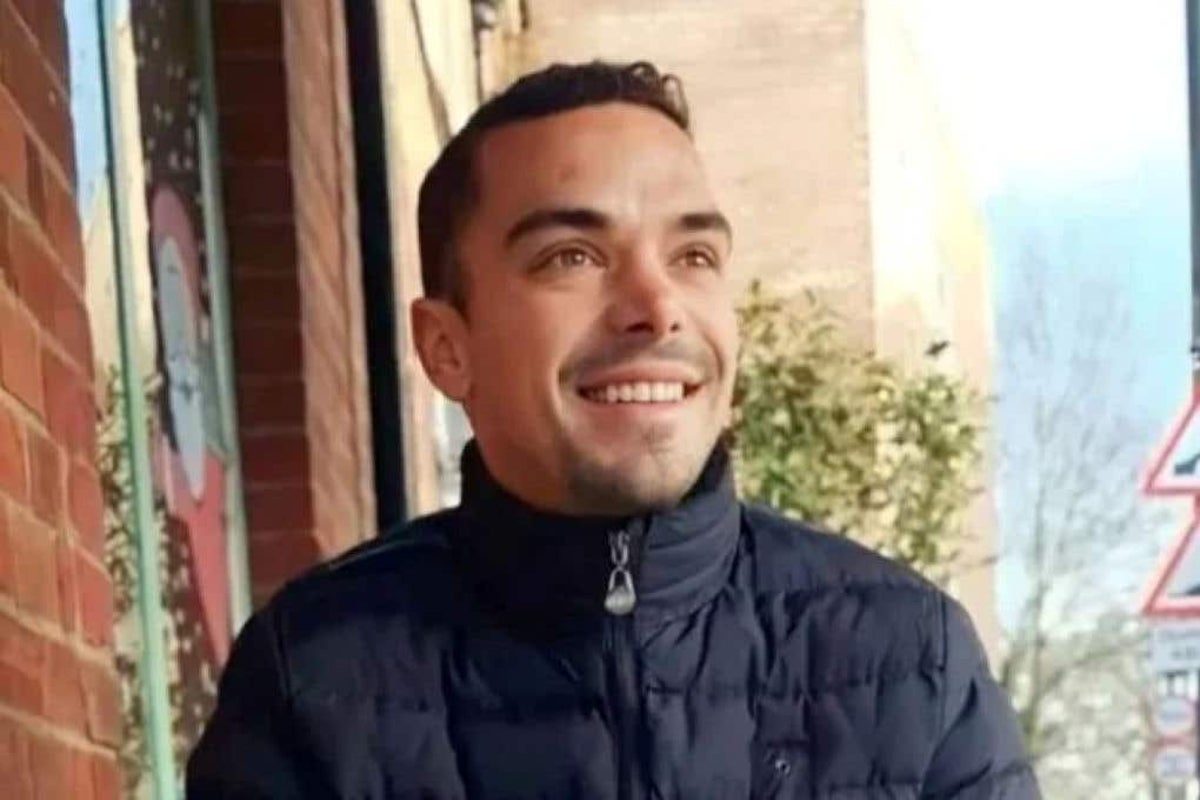
A coroner has ruled the Home Office “missed opportunities” to assess the mental health of an asylum seeker before he was moved on to the Bibby Stockholm where he took his own life.
Leonard Farruku was found unresponsive in the en-suite shower of his room on board the accommodation vessel at Portland Port, Dorset, on December 12 2023.
An inquest in Bournemouth was told that a post-mortem examination found that the 27-year-old died as a result of compression to the neck and suspension by ligature.
His sisters Marsida Keci and Jola Dushku have questioned how their brother, who they said had struggled with his mental health since the death of their parents, was allowed to be moved to the Bibby Stockholm on November 3 2023.
The inquest heard that Mr Farruku was previously accommodated at the Esplanade Hotel in Paignton, Devon, and began to show aggressive behaviour in July 2023.
Dorset coroner Rachael Griffin said that the Home Office had criteria that any resident who had more than primary health care needs, either medical or around mental health, should not be accommodated on the barge because of its remote location at Portland Port in West Dorset.
Ms Griffin said that a number of incident reports at the Devon hotel recording Mr Farruku’s behaviour as well as concerns for his mental health were made by the hotel safeguarding team in July and August.
She said these were forwarded on to the Home Office but were not placed on its Atlas immigration case-working system.
She said: “It is of concern that even today the Home Office witness did not accept that this was relevant information to be recorded on the central Atlas record.
“Unless recorded there it would not be available to staff conducting subsequent assessments, who would, at very least, then be alerted to a need to consider and look further into the mental health issues raised.”
Nia Dowd, safeguarding team leader for Clearsprings Ready Homes which had accommodated Mr Farruku on behalf of the Home Office, said that staff considered him to have “serious mental health issues”.
She said that she also emailed the Home Office on November 3 to “urgently” raise concern about Mr Farruku who was being moved to the barge but did not receive a response.
Ms Griffin said: “It was commendable of Ms Dowd that she passed on this information knowing Leonard had been moved, it should have led to a further inquiry about Leonard’s suitability, it was a missed opportunity of the Home Office not to take any action.”
The inquest heard that Mr Farruku had requested to be returned to his home country in order to receive mental health support there but he later changed his mind.
He also declined offers of referrals to mental health services and failed to attend when a first response team was sent to the hotel to help him.
Consultant forensic psychiatrist Dr Dinesh Maganty said that he had assessed reports of Mr Farruku’s behaviour and considered that he was suffering from a “severe mental illness” but Ms Griffin ruled that there was only “weak evidence that Leonard suffered a psychotic disorder”.
She said that his actions could be interpreted as a “quiet man who was miserable at his life situation”.
Ms Griffin said that no mental health assessment was made of Mr Farruku before he was moved to the barge and added: “There is so little known about what Leonard thought about the situation he found himself in as an asylum seeker.
“One can only guess what motivated him to come to the UK and risk his life in a small boat… I cannot say to what extent any aspiration he held had been diminished by his experience in the UK and in particular his response to being a destitute asylum seeker after being in the UK for 16 months.”
The inquest heard that while on the barge, Mr Farruku did not have friends but was described as being “smiley” and Ms Griffin said that he had not made any complaints about the accommodation and had not been subject to “racism or inappropriate acts” while onboard.
She added that there was no evidence he had displayed “aggressive or unusual” behaviour while staying on the Bibby Stockholm and he was described by a receptionist as being “sweet, friendly and happy” when he arrived on the barge.
Ms Griffin recorded a conclusion of suicide and said her duty to issue a prevention of future deaths report had not been triggered because the Bibby Stockholm had been decommissioned and there was no similar barge accommodation in use in the country.
She added that there were suitability assessment procedures in place for other large-scale accommodation sites elsewhere in the country.
Ms Griffin said: “Since Leonard’s death changes have been made to policies and procedures around the assessment processes of Devon Partnership NHS Foundation Trust and Home Office suitability criteria and I have been reassured that if changes have not been made they are imminently to be completed or rolled out.
“I would remind those at the Home Office that there is clear understanding by all those involved in accommodating asylum seekers of the processes in place, particularly around the expectations of medical assessment and treatment.”
Deborah Coles, director of the charity Inquest, said: “We can all agree that everyone, especially those seeking safety, should be treated with dignity and humanity.
“Yet this inquest has laid bare the fatal consequences of placing people like Leonard Farruku on barges in de facto imprisonment where safeguards exist only on paper.
“These harmful policies isolate people from community, support and healthcare, and deny them dignity. Amid racist rhetoric around immigration, we must remember the real human cost.
“We won’t forget Leonard, and we won’t stop demanding justice for all those failed by inhuman and racist immigration policies.”
